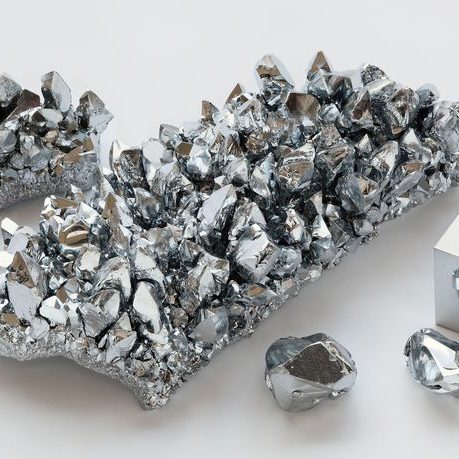Titanium GR4 (TI GR.4, UNS R50700)
Titanium GR4 has excellent corrosion resistance. Like other pure titanium alloys (Titanium GR1, Titanium GR2, Titanium GR3 Titanium GR4), Titanium GR4 is also easy to process, easy to form and has very good welding ability.
Titanium GR4 has high corrosion resistance, it is used in sea water applications and many chemical environments. Titanium GR4 is the highest hardness among pure titanium. For this reason, it is generally used as impant material in medical sector where mechanical properties are important for corrosion resistance as well as in various fastener construction.
Chemical Composition of Titanium GR4 (%)
- Carbon: 0.08
- Nitrogen: 0.05
- Oxygen: 0,40
- Other: 0,40
- Titanium: The Rest
- Iron: 0,50
- Hydrogen:0,015
Titanium Gr.4, titanium’s excellent resistance to corrosion and corrosion fatigue, is suitable for many chemical and seawater applications.
Titanium GR4 can be considered in every application where strength and corrosion resistance are important.
Titanium GR4 has good ductility, moderately formulated and has superior corrosion fatigue resistance in seawater. Applicable operating temperatures for Titanium GR4 are up to 204 ºC (400 ° F).
Some applications of Titanium GR4
Body and aircraft engine components,
- Sea water environments
- Chemical processing machines
- Heat exchangers
- Chemical treatment and desalination plants
- Abrasive waste disposal wells
- Pulp
The corrosion resistance of titanium GR4 is based on the presence of a stable, continuous, tightly adhering oxide layer that spontaneously forms after exposure to oxygen.
Titanium GR4 is strongly resistant to corrosion in marine environments. Titanium GR4 is fully resistant to corrosion up to 315 ºC (600ºF) in seawater.
Titanium GR4 is highly resistant to many chemical environments including oxidizing media, alkaline media, organic compounds and acids, aqueous salt solutions and wet or dry hot gases.
Titanium GR4 also has sufficient corrosion resistance to liquid metals, nitric acid, slightly reducing acids and wet chlorine or bromine gas (as long as minimum amount of oxygen or water is present).
Titanium GR4 is resistant to stress-corrosion cracking (SCC) in aqueous solutions and is largely resistant to SCC.
Titanium GR4 Mechanical Properties
Titanium Grade 4 has the highest strength of pure titanium grades. This makes it possible to compete with stainless steels in many corrosion resistant applications. It is parallel to hardened annealed stainless steels and additionally offers lighter and superior wear resistance. Titanium Grade 4 is not subject to grain erosion or sensitization at elevated temperatures.
Heat treatment used for titanium is annealing and stress relief. Tempering is used to completely soften the material and remove all residual stresses. Tempering of the forged products at typical temperatures (under the beta transducer) results in a completely crystallized equiaxed alpha structure. Precise control of the particle size (and mechanical properties) can be achieved by adjusting the tempering temperature.
TITANIUM GR4 COLD FORMING
Titanium Grade 4 has a relatively good ductility and can be formed at room temperature, but cold forming deformation should be less rigid than low strength grades. Standard methods such as bending, stretching, shaping, pressing, stamping and drawing apply to Titanium Grade 4. The Titanium Grade 4 hardens very quickly, creating a limitation in some processes, such as cold drafting.
TITANIUM GR4 HOT FORMING
Titanium Grade 4 can be processed by conventional techniques such as hot rolling, forging and hot pressing.
WELDING CONFIGURATION
Titanium Grade 4 can be welded using titanium filler metal.
STANDARDS
Titanium GR4 (UNS R50400) is available in the following shapes.
- Titanium GR4 rod
- Titanium GR4 shaft
- Titanium GR4 plate
- Titanium GR4 sheet
- Titanium GR4 pipe
- Titanium GR4 wire
- Titanium GR4 welding wire
- Titanium GR4 forging
- Titanium GR4 standards and norms
- Titanium GR4 pull pipe: ASTM B861 / ASME SB-861
- Titanium GR4 welded tube: ASTM B862 / ASME SB-862
- Titanium GR4 pipe fittings: ASTM B363 / ASME SB-363
- Titanium GR4 pipe: ASTM B337 / ASME SB-337
- Titanium GR4 rod: ASTM B348 / ASME SB-348
- Titanium GR4 sheet, plate: ASTM B265 / ASME SB-265
- Titanium GR4 forged: ASTM B381 / ASME SB-381
- Titanium GR4 casting: ASTM B367 / ASME SB-367
- Titanium GR4 ASTM B348,
- Titanium GR4 ASME SB348,
- Titanium GR4 ASTM B265
- Titanium GR4 ASME SB265
- Titanium GR4 ASTM B265-79 GR 2;
- Titanium GR2 AMS 4902,
- Titanium GR4 ASTM B348-78 GR 2,
- Titanium GR4 ASTM F467-76 GR 2,
- Titanium GR4 ASTM F468-76 GR 2,
- Titanium GR4 ASTM B337-78 GR 2,
- Titanium GR4 ASTM B338-78 GR 2,
- Titanium GR4 ASTM F67-77 GR 2
- Titanium GR4 AMS 4901 (Sheet, Strip, Plate)
- Titanium GR4 AMS 4921 (Rod, Wire, Forging, Billet)
- Titanium GR4 ASTM B 381 (Forging)
- Titanium GR4 ASTM B265 (Sheet, Strip, Plate)
- Titanium GR4 ASTM B348 (Bar, Billet)
- Titanium GR4 ASTM B367 (Casting)
- Titanium GR4 ASTM F 1341 (Wire)
- Titanium GR4
- ASTM F 67 (Sheet, Strip, Bar)
- Titanium GR4 ISO 5832-2
- Titanium GR4 MIL-T 9047 (Rods, Logs)



 Turkish
Turkish
